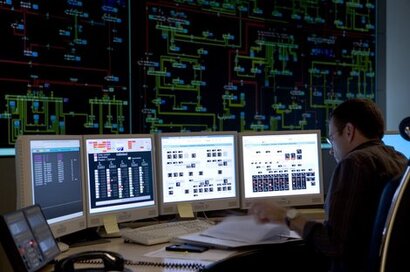
The updates include:
Hybrid Energy Management System (HEMS), enabling seamless coordination between PV and battery storage, optimising internal power flow for efficiency, cost-effectiveness, and grid compliance.
Enhanced Energy Management System (EMS), improving battery storage performance by optimising energy dispatch, prolonging asset lifespan, and maintaining grid reliability.
“The future grid runs on energy storage and hybrid systems” said Juan Carlos Arévalo, CEO of GreenPowerMonitor, a DNV company. “With falling battery prices, our upgraded HEMS and EMS solutions help renewable plants capitalize on this tipping point. By merging GPM’s 25 years of renewables expertise with DNV’s 5,000+ energy advisors, we’re delivering the solutions needed to phase out fossil backups. We are committed to driving innovation to meet the needs of both our customers and the industry. Working together, by advancing storage systems to reduce reliance on fossil fuels during peak demand, we contribute to meaningful carbon emissions reductions.”
Technologies such as energy storage enhance grid reliability by ensuring energy availability regardless of conditions. The latest HEMS system features aim to transform the renewable energy landscape. The GPM HEMS solution ensures hybrid project reliability and efficiency by maintaining grid compliance and optimiing the performance of photovoltaic (PV) and battery energy storage systems (BESS).
The GPM EMS system complements these capabilities by improving overall system efficiency, maximising the performance of the BESS and maintaining seamless grid integration.
BESS management is essential for maintaining overall grid stability and advancing this technology is key to achieving more efficient and resilient renewable energy generation.
Battery prices have been declining steadily, with a 14 percent drop in 2024 alone, a trend that is making 24-hour solar and storage power more accessible. GPM is meeting market needs and aiding advancements by pulling on its extensive experience, 90 GW under management, cutting-edge data science skills and support of more than 5,000 experts from DNV’s advisory departments.
Ultimately, by reducing reliance on fossil fuels during peak demand, BESS and other hybrid energy storage systems will contribute significantly to lowering carbon emissions.
For additional information:

